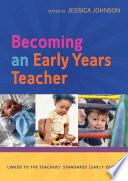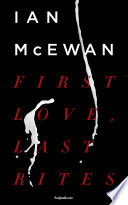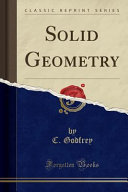Check out our list of the best authors like Ian McEwan. Each award-winner will take you on a thought-provoking adventure as you add them to your reading list.
Born in Hampshire, England, in 1948, Ian McEwan stands as one of Britain’s most influential contemporary writers. His military father’s postings across East Asia, Germany, and North Africa exposed young McEwan to diverse cultures that would later enrich his storytelling. After studying English at the University of Sussex and completing graduate work at the University of East Anglia, McEwan launched his literary career with the short story collection First Love, Last Rites, which won the Somerset Maugham Award in 1975.
McEwan’s evolution from the dark, controversial works that earned him the nickname “Ian Macabre” to his later masterpieces showcases remarkable artistic growth. His 1998 novel Amsterdam won the Booker Prize, followed by the critically acclaimed Atonement in 2001. Throughout his career, McEwan has masterfully blended psychological complexity with elegant prose, exploring themes of memory, guilt, and moral ambiguity that resonate deeply with readers seeking sophisticated literary fiction.
For more recommendations, you might also enjoy exploring best adventure books, best David Sedaris books, or authors like Bill Bryson.
Must-Read Authors Like Ian McEwan
1. John Banville, 1945 -
John Banville, the Irish master of literary fiction, shares McEwan’s gift for psychological depth and exquisite prose. His meticulous attention to language and exploration of memory, identity, and loss creates the same immersive reading experience that McEwan devotees cherish.
Why Banville Mattes: In our digital age of rapid communication, Banville’s deliberate, careful prose offers a counterpoint to instant gratification. His exploration of how we construct identity through memory feels particularly relevant as AI and social media reshape how we understand ourselves.
Banville’s breakthrough came with The Revolutions Trilogy, examining the lives of famous scientists through richly imagined historical fiction. His 2005 novel The Sea won the Booker Prize, cementing his reputation as one of literature’s finest stylists. Recent works like Snow and April in Spain continue to showcase his mastery of language and character development.
“Perhaps all of life is no more than a long preparation for the leaving of it.”
— John Banville, The Sea
2. Louis de Bernieres, 1954 -
Louis de Bernieres combines McEwan’s emotional intelligence with sweeping historical narratives that examine how ordinary people navigate extraordinary circumstances. His ability to weave personal stories into larger historical contexts mirrors McEwan’s skill at finding the universal in the particular.
De Bernieres’ contemporary relevance: As global conflicts continue to shape our world, de Bernieres’ exploration of how war affects individuals and communities provides crucial insights into human resilience and the persistence of love amid chaos.
After experiences teaching in Latin America influenced his early trilogy, de Bernieres achieved international recognition with Captain Corelli’s Mandolin. His 2004 novel Birds Without Wings demonstrates his continued mastery of historical fiction, exploring the collapse of the Ottoman Empire through deeply personal stories.
“Man is a bird without wings and a bird is a man without sorrow.”
— Louis de Bernieres, Birds Without Wings
3. Paul Auster, 1947 -
Paul Auster’s postmodern sensibility and exploration of identity, chance, and storytelling itself resonates with readers who appreciate McEwan’s intellectual sophistication. Both authors examine how narrative shapes our understanding of reality and ourselves.
Auster’s modern relevance: In an era of “alternative facts” and narrative manipulation, Auster’s questioning of story reliability and identity construction feels remarkably prescient. His work helps readers navigate our complex relationship with truth and fiction.
Beginning with his 1984 novel Squeeze Play (written under the pseudonym Paul Benjamin), Auster gained recognition with The New York Trilogy. His 1987 work In the Country of Last Things showcases his ability to blend philosophical inquiry with compelling narrative.
“There is no escape from this. Either you do or you don’t. And if you do, you can’t be sure of doing it the next time. And if you don’t, you never will again.”
— Paul Auster, In the Country of Last Things
4. William Boyd, 1952 -
William Boyd’s sweeping narratives and exploration of 20th-century history through personal stories share McEwan’s interest in how individual lives intersect with larger historical forces. Both authors excel at creating characters whose personal struggles illuminate broader human experiences.
Boyd’s global perspective for 2025: As we navigate increasing global interconnectedness and its discontents, Boyd’s examination of colonialism, cultural identity, and historical complexity provides valuable frameworks for understanding our current moment.
Drawing from his childhood in West Africa, Boyd’s debut A Good Man in Africa won both the Whitbread Award and Somerset Maugham Prize. His subsequent novels, including the Booker Prize-shortlisted An Ice-Cream War, establish him as a masterful chronicler of historical upheaval.
“When the going gets tough, the tough gets going.”
— William Boyd, A Good Man in Africa
5. Kate Atkinson, 1951 -
Kate Atkinson’s innovative narrative structures and deep psychological insight create the same kind of literary satisfaction that McEwan readers seek. Her ability to blend humor with profound observations about human nature mirrors McEwan’s tonal complexity.
Atkinson’s narrative innovation: In our fragmented media landscape, Atkinson’s experimental storytelling techniques—particularly her exploration of alternative histories and parallel lives—reflect how we now experience reality through multiple, sometimes contradictory narratives.
Atkinson’s career launched spectacularly with Behind the Scenes at the Museum, which won the 1995 Whitbread Book of the Year. Her World War II novels Life After Life and A God in Ruins demonstrate her mastery of complex narrative structures and historical imagination.
“In the end, it is my belief, words are the only things that can construct a world that makes sense.”
— Kate Atkinson, Behind the Scenes at the Museum
6. Julian Barnes, 1946 -
Julian Barnes shares McEwan’s fascination with memory, mortality, and the unreliability of human perception. Both authors craft elegant, precisely observed fiction that examines how we construct meaning from the fragments of experience.
Barnes’ philosophical inquiry in 2025: As we grapple with questions about truth, memory, and meaning in an age of information overload, Barnes’ philosophical approach to fiction provides tools for examining what it means to be human in uncertain times.
From his 1980 debut Metroland through his 2022 work Elizabeth Finch, Barnes has consistently explored the intersection of personal history and larger cultural forces. His 2011 Booker Prize winner The Sense of an Ending exemplifies his skill at examining how memory shapes identity.
“This was another of our fears: that Life wouldn’t turn out to be like Literature.”
— Julian Barnes, The Sense of an Ending
7. Zadie Smith, 1975 -
Zadie Smith brings contemporary relevance to literary fiction’s traditional concerns, much as McEwan does. Her exploration of multicultural Britain and identity formation speaks to readers seeking fiction that engages with current social realities while maintaining literary sophistication.
Smith’s cultural bridge-building: In our increasingly polarized world, Smith’s ability to find common humanity across cultural and generational divides offers a model for literature’s potential to create understanding and empathy.
Smith’s meteoric rise began with White Teeth, published in 2000 while she was still at Cambridge. The novel’s success established her as a major voice in contemporary fiction. Her latest novel The Fraud, released in 2023, demonstrates her continued evolution as a writer.
“Every moment happens twice: inside and outside, and they are two different histories.”
— Zadie Smith, White Teeth
8. Jeffrey Eugenides, 1960 -
Jeffrey Eugenides’ careful attention to character development and his exploration of identity, family, and American life create the same kind of deeply satisfying reading experience that McEwan provides. Both authors understand how personal stories illuminate universal themes.
Eugenides’ American perspective: As America continues to grapple with questions of identity and belonging, Eugenides’ nuanced exploration of the immigrant experience and cultural transformation provides valuable insights into contemporary American life.
Eugenides established his reputation with The Virgin Suicides in 1993, which was adapted into a successful film. His Pulitzer Prize-winning novel Middlesex demonstrates his ability to handle complex themes with both intelligence and emotional resonance.
“It was one of those humid days when the atmosphere gets confused. Sitting on the porch, you could feel it: the air wishing it was water.”
— Jeffrey Eugenides, Middlesex
9. Margaret Atwood, 1939 -
Margaret Atwood’s prescient vision and masterful storytelling create the same sense of urgency and relevance that readers find in McEwan’s best work. Both authors understand how to use fiction to examine pressing contemporary concerns.
Atwood’s prophetic relevance: With climate change, political authoritarianism, and technological surveillance becoming increasingly urgent concerns, Atwood’s speculative fiction provides frameworks for understanding and responding to contemporary challenges.
From her 1969 debut The Edible Woman through recent works, Atwood has consistently pushed literary boundaries. Her 1985 masterpiece The Handmaid’s Tale feels more relevant than ever, while The Blind Assassin won the 2000 Booker Prize.
“Ignoring isn’t the same as ignorance, you have to work at it.”
— Margaret Atwood, The Handmaid’s Tale
10. Martin Amis, 1949 - 2023
Martin Amis shared McEwan’s dark intelligence and satirical edge, creating fiction that was both entertaining and deeply unsettling. Both authors understood how to use humor and horror to illuminate the contradictions of modern life.
Amis’ lasting influence: Though he passed away in 2023, Amis’ satirical vision of contemporary society continues to resonate. His dark comedy and social criticism provide a template for understanding how literature can engage with society’s failures and absurdities.
Amis gained recognition with novels like Money and London Fields, which combined literary sophistication with accessibility. His memoir Experience won the James Tait Black Memorial Prize, demonstrating his versatility across genres.
“Death helps. Death gives us something to do. Because it’s a full-time job looking the other way.”
— Martin Amis, London Fields
Finding Your Next Literary Adventure
These authors share McEwan’s commitment to psychological depth, elegant prose, and the exploration of complex moral questions through compelling narratives. Whether you’re drawn to Banville’s lyrical precision, Atwood’s prophetic vision, or Smith’s contemporary cultural insights, each offers the kind of sophisticated literary experience that makes fiction essential.
Start with whichever author’s themes most intrigue you—whether it’s Barnes’ philosophical inquiry, Atkinson’s narrative innovation, or Eugenides’ exploration of identity. Each provides a unique lens through which to examine the human condition while maintaining the literary excellence that McEwan readers demand.





